From Carl R. Woese Institute for Genomic Biology - University of Illinois Urbana-Champaign
MAC OSX
OSX 10.5 through OS X 10.7
- XServer is already built into OSX
OSX 10.8 through 10.10
Connecting
- Open a terminal client and type in
ssh -X [yournetid]@[destination.server].edu
- The -X after "ssh" tells the computer to connect using xserver
- yournetid - is your university netid
- destination.server.edu - the server you would like to connect too (example: biocluster.igb.illinois.edu)
Windows with MobaXterm
Windows with PuTTY
- For users who prefer PuTTY. You will need to setup the program XMing
Download the following files
Installing Xming
- Run "Xming-6-9-0-31-setup.exe" installer. Follow the screenshots below.
- Click Next
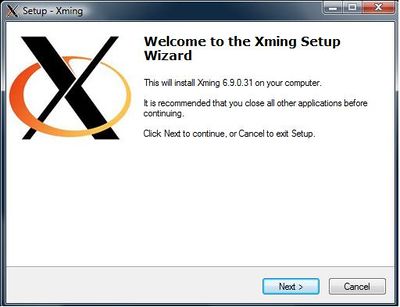
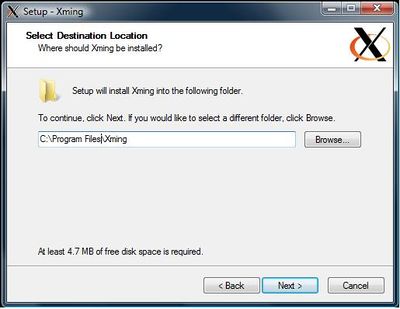
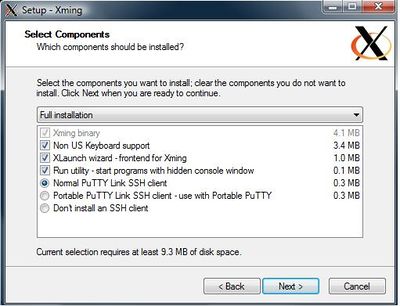
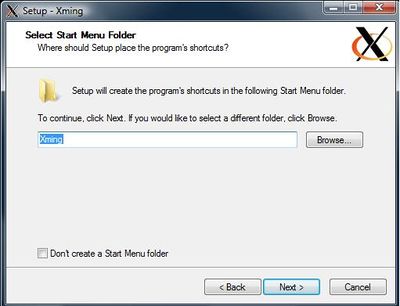
- Uncheck everything except for "Associate XLaunch.exe with the .xlaunch file extension"
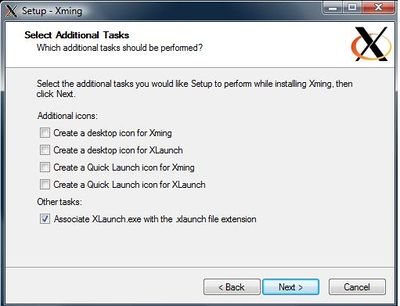
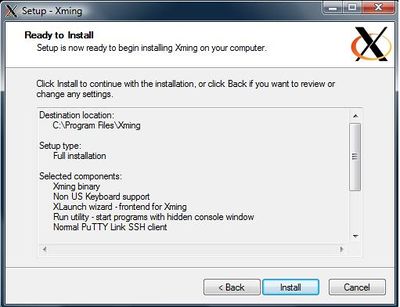
- Uncheck "Launch Xming". Click finish
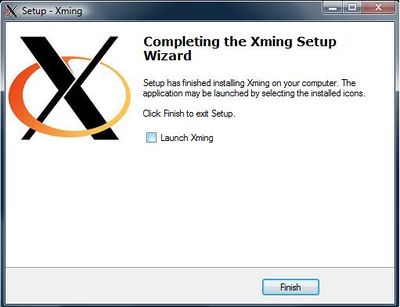
Installing PuTTy
- Run "putty-0.60-installer.exe" installer. Follow the screenshots below.
- Click Next
File:Putty install1.jpg
File:Putty install2.jpg
File:Putty install3.jpg
File:Putty install4.jpg
File:Putty install5.jpg
File:Putty install6.jpg
- Run "putty.reg". At the warning that pops up click Yes. It will be similar to the following screenshot
File:Putty.reg.jpg
Connecting to X Server
- Run "xserver.xlaunch". This is the Xming profile that is needed to connect properly use Xming with a server
- Run PuTTY by going to Start->Programs->PuTTY->PuTTY
- Type in the hostname you are connecting to then click Open.
- Login with the username/password for this host.
- You are now connected. You should be able to run any xserver capable program.
Testing
- A good test is to run the program "xterm". Most hosts will have this installed. It will open up a graphical terminal box.
[username@hostname ~]$ xterm






